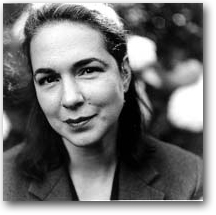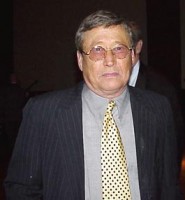So Fixed Your Function
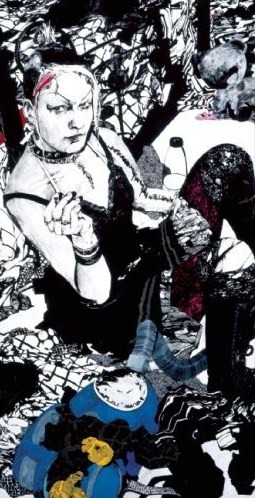 Like if I watched you brushing your teeth, you pick up toothbrush this way, start on this tooth, move that way, spit, start there, that tooth…the same method every morning. You don’t believe me? Videotape yourself.
Like if I watched you brushing your teeth, you pick up toothbrush this way, start on this tooth, move that way, spit, start there, that tooth…the same method every morning. You don’t believe me? Videotape yourself.
You drive to work two ways. Two routes, maybe. Same roads/signs/stores/sky. You could easily take some other roads/paths, maybe 40. You would see 40 new things. But you don’t.
I want you to go eat something new. Don’t cheat. Go the ethnic restaurant, produce aisle, international market—select something you have never eaten before. Eat it.
What is the point?
They Shoot the White Girl First…
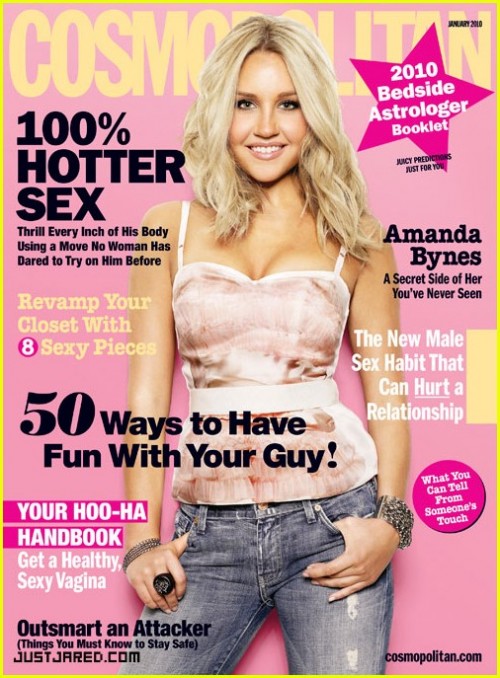 The title of this post from the opening line of Toni Morrison’s, Paradise.
The title of this post from the opening line of Toni Morrison’s, Paradise.
Opening lines are like titles. I am going to briefly discuss titles. This might help you, or will maybe interest any students you might attempt to shepherd/lose. I’ve found students often go no-title, and I am against no-title, unless you have been writing for 20 years and work in minimalist miniature black and white photos. Or do heroin.
So.
See that young lady and her cleavage (probably done by this guy) on the cover of a magazine I consider vituperation to the brain, body, beauty, soul? It is going to help me.
Creative Writing 101: All’s Well That Ends Well
 I am writing this late on Thursday night, having just gotten back from my ~2 hour commute from Rutgers. I’ve got my shoes off and have poured myself a big fat Jim & Ginger, a solitary if not precisely lonely celebration of the end of my teaching semester, my first one as an instructor of college-level creative writing. If this were an MFA program, I probably would have insisted we adjourn our session to a bar, but since about 3/4 of the students can’t (or can’t legally) drink in a bar, I brought a box of Oreos to class.
I am writing this late on Thursday night, having just gotten back from my ~2 hour commute from Rutgers. I’ve got my shoes off and have poured myself a big fat Jim & Ginger, a solitary if not precisely lonely celebration of the end of my teaching semester, my first one as an instructor of college-level creative writing. If this were an MFA program, I probably would have insisted we adjourn our session to a bar, but since about 3/4 of the students can’t (or can’t legally) drink in a bar, I brought a box of Oreos to class.
Some of those who had been following the CRW101 threads expressed disappointment when they stopped appearing, about a month ago. As I think I explained at the time, that was because we switched from close-reading literature-discussion mode into workshopping-student-work mode, and since I made a commitment at the outset of this series not to identify individual students or subject them to public scrutiny, that didn’t leave me with a whole lot to talk about.
Creative Writing 101: Revision
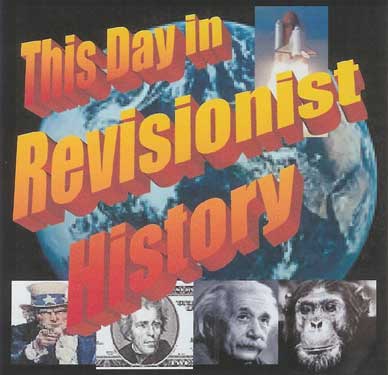 Some people have asked me what happened to my CRW101 posts on this site. The answer is that I stopped writing them, because after we read Cymbeline, the nature of the class shifted and we went into workshop mode. Since we’re now reading student work and not publicly available work, it doesn’t leave me with a whole lot to share. But, before that change happened–or rather, I guess, on the cusp of it–I did something I almost never do in any class I teach: I prepared a lecture and then I delivered it. The lecture was on the nature of revision, and was helpfully entitled “Revision: An Almost Obscenely Brief Overview.” Increasingly I wonder about the necessity of that qualifier, “almost,” but as we approach the end of the semester, and the due date of their final, some of my students have asked if I would make the lecture available (possibly because I promised to do it at the time, then forgot to) and so I’ve decided to post it here. The “lecture,” such as it is, runs just about 2000 words, and it doesn’t attempt to be in any sense comprehensive. It is intended for an audience of beginning writing students, some of whom may be encountering the concepts of editing and revision for the first time. It is divided into two parts. The first part discusses how–and if–to develop material from in-class exercises (and/or free-writes) into workable and work-with-able drafts. The second part outlines two basic principles of editing–adding stuff, taking stuff away–and the advantages of reading your work aloud and editing by ear. The whole thing demonstrates a clear bias towards realist prose fiction–especially in its examples–but the attempt was made to be inclusive, and most of these notions should be adaptable for use by anyone.
Some people have asked me what happened to my CRW101 posts on this site. The answer is that I stopped writing them, because after we read Cymbeline, the nature of the class shifted and we went into workshop mode. Since we’re now reading student work and not publicly available work, it doesn’t leave me with a whole lot to share. But, before that change happened–or rather, I guess, on the cusp of it–I did something I almost never do in any class I teach: I prepared a lecture and then I delivered it. The lecture was on the nature of revision, and was helpfully entitled “Revision: An Almost Obscenely Brief Overview.” Increasingly I wonder about the necessity of that qualifier, “almost,” but as we approach the end of the semester, and the due date of their final, some of my students have asked if I would make the lecture available (possibly because I promised to do it at the time, then forgot to) and so I’ve decided to post it here. The “lecture,” such as it is, runs just about 2000 words, and it doesn’t attempt to be in any sense comprehensive. It is intended for an audience of beginning writing students, some of whom may be encountering the concepts of editing and revision for the first time. It is divided into two parts. The first part discusses how–and if–to develop material from in-class exercises (and/or free-writes) into workable and work-with-able drafts. The second part outlines two basic principles of editing–adding stuff, taking stuff away–and the advantages of reading your work aloud and editing by ear. The whole thing demonstrates a clear bias towards realist prose fiction–especially in its examples–but the attempt was made to be inclusive, and most of these notions should be adaptable for use by anyone.
Creative Writing 101
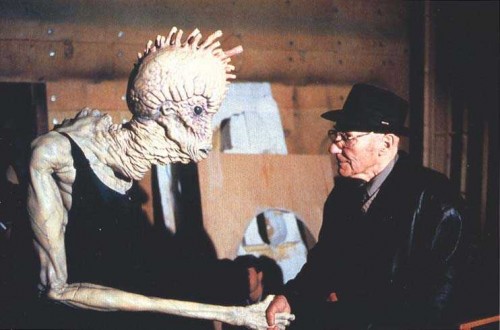
Tuesday, 10/13. Shredded Text Day.
For Tuesday we read a few brief excerpts from Naked Lunch (Dr. Benway’s “aesthetic surgery,” and “have you seen Pantopon rose”) plus four selections from Gentle Reader! a collaborative book of poetry written by Joshua Beckman, Anthony McCann and Matthew Rohrer. If you’ve never heard of this book, it’s because it was privately (or, if you want to be a dick about it, self-) published by the three poets, and hence is not generally available. (I cadged a copy from Rohrer.) The poems are not written collaboratively–I don’t think–but they’re all unsigned, so you have to guess who wrote what. Also, each poem is an erasure of a Romantic-era text. There’s a key at the back. Since I don’t have the materials ready-to-hand (I’m posting this from a writers’ retreat in Breckenridge, CO, where I’m serving as writer-in-residence for the weekend) I can’t tell you much about the poems, other than that the one called “I Was Alive” is an erasure of Frankenstein, and that it was written by Anthony McCann–both of which things I know because McCann first published the poem non-anonymously in the Agriculture Reader.
Anyway, we didn’t do a lot of textual analysis, and so you won’t be getting the usual slate of close readings. I was more interested in presenting a variety of non-narrative forms, and in talking about the technical aspects of the processes used to create the works. Then we busted out the scissors, Sharpies, and photocopies, and got down to the good work of fucking shit up.
Creative Writing 101

(for previous installments in this series, click here)
WORK DISCUSSED THIS WEEK: “Ancestral Legacies,” “On the Subject of Fiction Based on Non-Ficton,” and “The Gun Lobby” – all by Jim Shepard.
My goal for this week was to give the class another sense of the scope of writerly possibility. This time, instead of pairing different mediums of writing or organizing some little squad of unrelated writers together around a common theme, I chose to showcase two very different works of fiction by the same writer. “Ancestral Legacies” is historical fiction, and follows two Nazis on a pseudo-scientific mission to Tibet. (Himmler has ordered them to trace the path of a legendary Aryan ur-language; believing Himmler’s claims to be nonsensical, but their own to be legitimate, they’ve taken his funding and are using it to conduct their own research into the existence of the yeti.) “The Gun Lobby” is about a suburban marriage falling apart–the wife has taken the husband hostage in their home.
The biggest surprise came first– large factions of the class didn’t like “Ancestral Legacies.” They thought it moved too slowly, and was “boring.” I couldn’t believe this. Nazis! Tibet! Yeti! And they were “bored…”
Creative Writing 101


[ WORK DISCUSSED: Tuesday (9/22) – Adrienne Rich, five poems and an essay. Thursday (9/24) – “New York” by Tony Towle; “Texas” by Padgett Powell; “Babalu-Aye” by Eva Talmadge;” writing exercise.]
I never know how to start the class off. Or anyway that’s how it feels. I usually arrive in the room a few minutes early, and start chatting with whoever else is already there. If there’s a conversation already in progress I’ll try to join it, and if they’re all just sitting around quietly I’ll pick someone and ask how his or her day is going, or how the weekend was. If they throw the question back at me (“and how about you?”) I’ll tell them. I try to take attendance right at the official start time, not so much to punish the stragglers as to reward those who got there early. I want them to see me seeing the effort they’ve made. So we do that, and it’s like–now what? “Okay,” I often find myself saying, “what did we read for today?” It’s not that I can’t remember what we read. It’s just that I think there’s something useful about saying it out loud. I asked the class if they preferred to talk about the poems or the essay first. A few people kind of said “poems,” so I said okay, but then there was another choice to be made–which poem? One of the pitfalls of my teaching style (which strives to be dynamic, responsive, and rigorously un-structured) is that it’s hard to get off the ground. It’s like an old prop plane, where you need to start the propellers spinning by hand and then sort of guide it down the runway and hope everything is timed just right and take-off actually happens. Sometimes this takes a few tries. Nobody seemed to care where we started, and consequently we weren’t starting at all.
Creative Writing 101
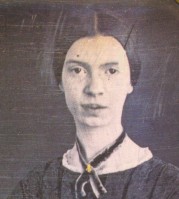
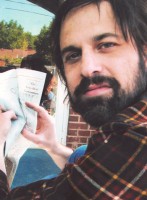
For people who are following this series, I’m starting to think that it will make the most sense to post 1 per week, on Friday, which will cover both meetings of the class during that week (on Tues & Thurs nights). To come home and do the Tuesday post that same night or the next day would be too much, besides which if the class is actually checking in here, it might feel a little too rapid-response. I’d rather let the whole week play out, then do the post-game and give everyone (me, them, you) the weekend to mull it over and/or forget it ever happened. So that’s the new plan, and here we are with the field reports from 9/15 (Schutt & Dickinson) and 9/17 (more Berman, Percy Shelley, and a writing exercise). And for people who are just coming to the series now, the first two installments are here (1) and here (2). Everyone else, I’ll see you after the jump.
September 18th, 2009 / 1:30 pm
Creative Writing 101

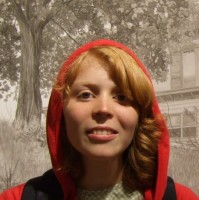

For Thursday (9/10) we read “My Dog is a Little Obese” by Ellen Kennedy, “How to Date a Browngirl, Blackgirl, Whitegirl or Halfie” by Junot Diaz, and “To His Coy Mistress” by Andrew Marvell. The theme was DIRECT ADDRESS and INSTRUCTION. As on Tuesday, we spent most of the time on the fiction piece. I think this is because fiction feels “easier” to talk about than poetry, like you’re not going to screw up the technical terms or something. And I think that having a teacher who is primarily a fiction writer contributes to this atmosphere, so I’m going to work harder in the future to check myself. But I think there’s a second reason as well, which is that a relatively straight prose narrative like the Diaz story (or Hemingway last week) yields itself to a kind of knee-jerk cultural studies reading, where the text is really just a pre-text for the themes and politics it evinces or brings to light. Especially with a piece like this one by Diaz, where the narrator is giving “you” instructions on how to re-arrange your apartment so you don’t look as poor as you are, and then impress the various girls you might have invited over, with particular race-based instructions for each one. I hate this way of reading.

